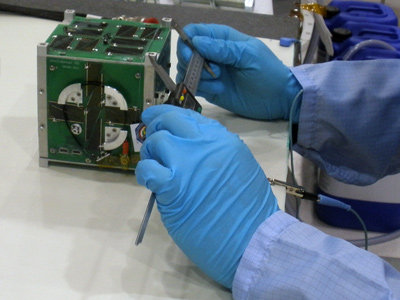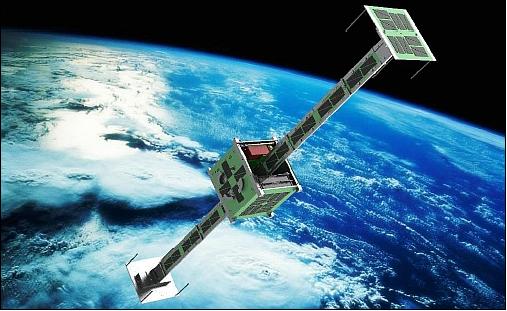UniCubeSat-GG (Gravity Gradient) reentered from orbit this morning 16 February 2015 at 11:20 UTC, after three years of adventure into space.
Built by the GAUSS Laboratory of the “Scuola di Ingegneria Aerospaziale” of the “Università di Roma La Sapienza”, it was the first CubeSat mission of the G.A.U.S.S. Group (Sapienza). The G.A.U.S.S. Srl company was founded a few months after this launch by a team of people involved in the original G.A.U.S.S. Group.
The nanosatellite was launched in orbit on 13 February 2012 at h 10:00 UTC onboard the Maiden Flight of the Vega Launch vehicle of ASI and ESA from Kourou (French Guiana), as educational payload (part of an initiative of the ESA Education Office and the Vega Program).
UniCubeSat-GG is a CubeSat type of satellite with dimensions of 10 cm x 10 cm x 13.5 cm and a reduced mass of 1 kg, carrying as main payload two booms for gravity gradient stabilization. Its objectives were to study the gravity gradient boosted by the presence of deployable booms equipped with solar panels for supplementary power generation and to get satellite’s attitude measurements. It reached a perigee of 302 km and an apogee of 1,101 km.
More information on the UniCubesat-GG mission:


